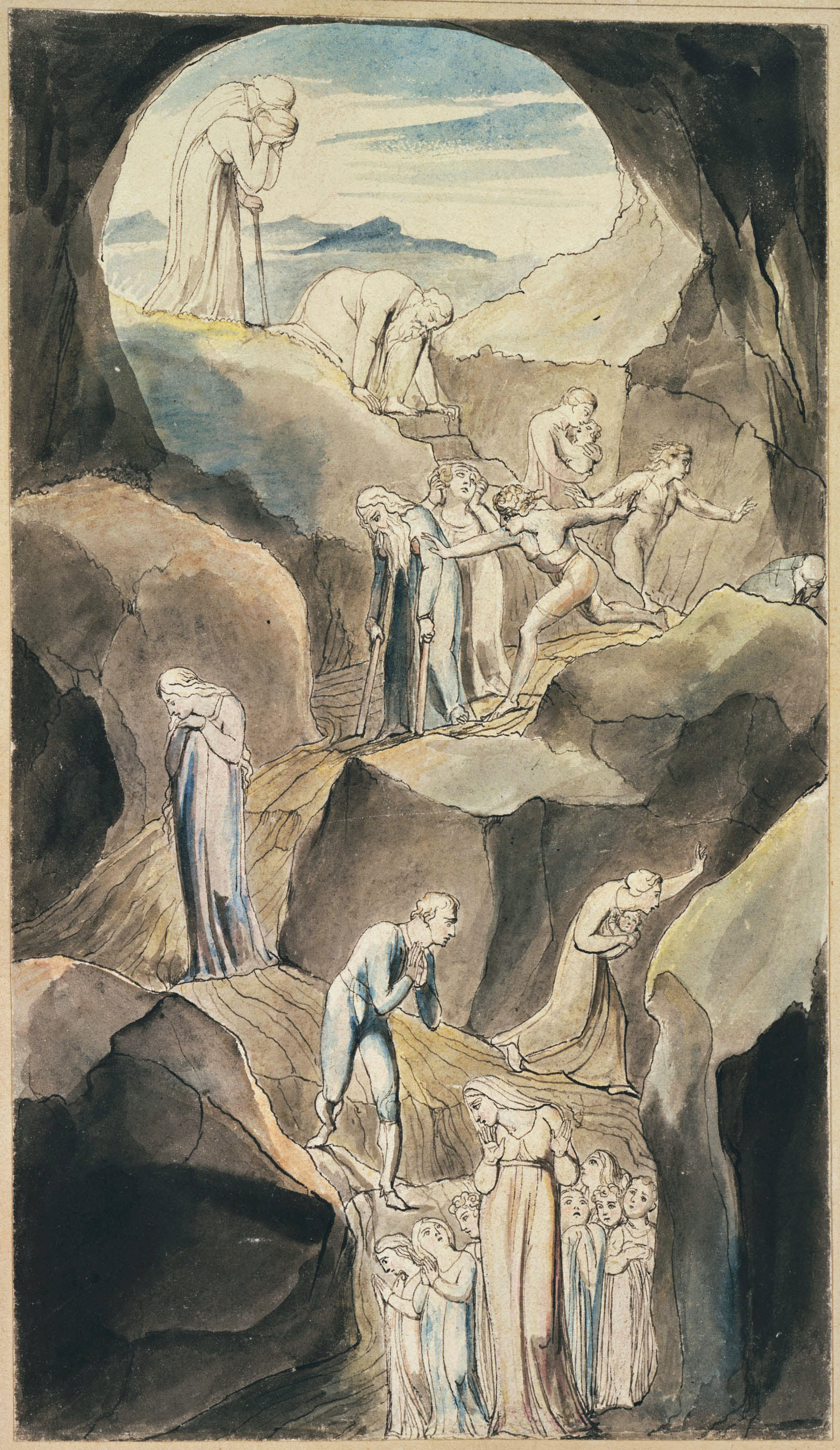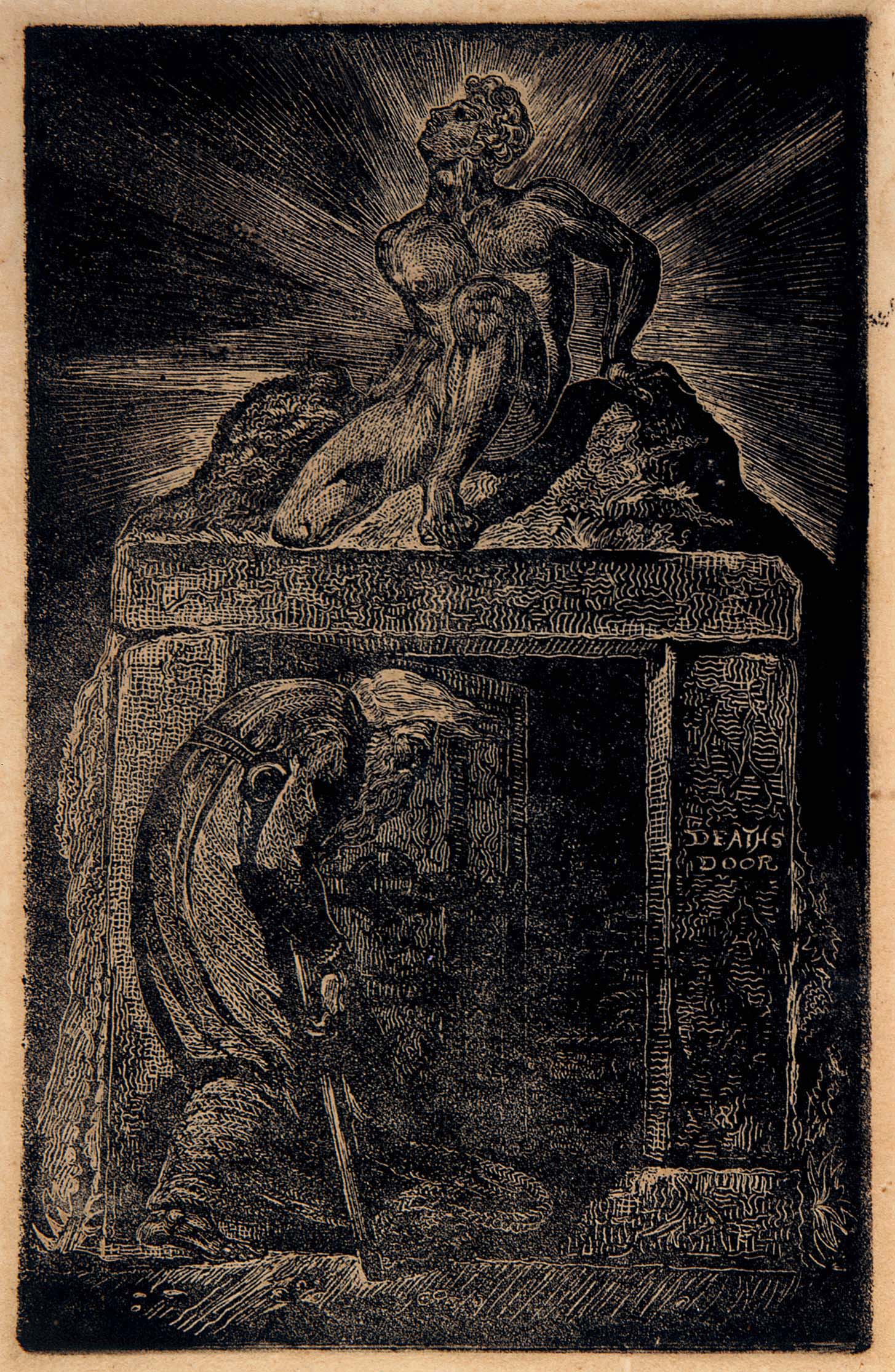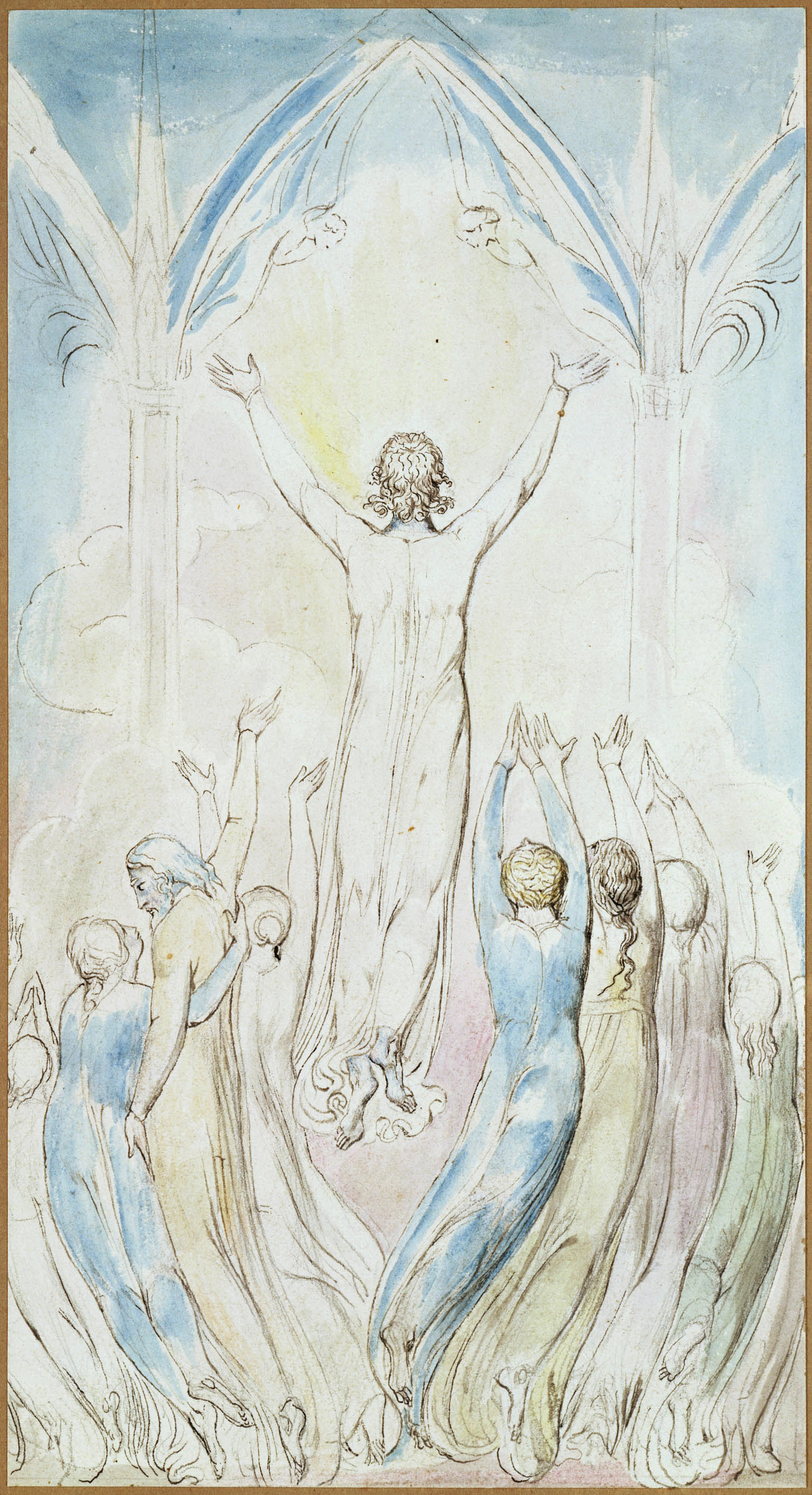The title itself announces that The Marriage of Heaven and
Hell will be about contrary states and attempts to
reconcile them. The Angel and the Devil are given opportunities to
present their perspectives. On Plate 3 we are told that contraries
are necessary. The perspective of the Angel is expressed in
equating good with 'Reason' and evil with energy.
Marriage of Heaven & Hell, Plate 3, (E 34)
"Without Contraries is no progression. Attraction and
Repulsion, Reason and Energy, Love and Hate, are necessary to
Human existence.
From these contraries spring what the religious call Good &
Evil. Good is the passive that obeys Reason[.] Evil is the active
springing from Energy.
Good is Heaven. Evil is Hell."
The Devil is given his opportunity to speak on Plate 4 and
praises the virtues of Energy, criticizes the exercise of
restraint.
Marriage of Heaven & Hell, Plate 4, (E 34)
"The voice of the Devil
All Bibles or sacred codes. have been the causes of the
following Errors.
1. That Man has two real existing principles Viz: a Body & a
Soul.
2. That Energy. calld Evil. is alone from the Body. & that
Reason. calld Good. is alone from the Soul.
3. That God will torment Man in Eternity for following his
Energies.
But the following Contraries to these are True
1 Man has no Body distinct from his Soul for that calld Body is
a portion of Soul discernd by the five Senses. the chief inlets
of Soul in this age
2. Energy is the only life and is from the Body and Reason is
the bound or outward circumference of Energy.
3 Energy is Eternal Delight"
Plate 5 develops the tension between desire and restraint.
Blake's concern about energy becoming suppressed and passive is
evident.
Marriage of Heaaven & Hell, Plate 5, (E 34)
"Those who restrain desire, do so because theirs is weak enough
to be restrained; and the restrainer or reason usurps its place &
governs the unwilling.
And being restraind it by degrees becomes passive till it is
only the shadow of desire."
The relationship between the Prolific (energy) and the Devouring
(reason) is explored on Plate 16.
Marriage of Heaven & Hell, Plate 16, (E 40)
"Thus one portion of being, is the Prolific. the other, the
Devouring: to the devourer it seems as if the producer was in
his chains, but it is not so, he only takes portions of existence
and fancies that the whole.
But the Prolific would cease to be Prolific unless the
Devourer as a sea recieved the excess of his delights."
A Memorable Fancy on Plate 19 demonstrates that the
conflict created between the Angel and Devil requires that one
agree to the activity of the other to sustain the disagreement.
Marriage of Heaven & Hell, Plate 19, (E 42)
"I answerd. All that we saw was owing to your metaphysics: for
when you ran away, I found myself on a bank by moonlight hearing
a harper, But now we have seen my eternal lot, shall I shew you
yours?"
On Plate 21 the Devil expresses Blake's opinion that the Angel, the
conventional, rational (left brained) way of thinking gets the upper
hand in the relationship of the contraries through his arrogant
assumptions.
Marriage of Heaven & Hell, Plate 21, (E 42)
"I have always found that Angels have the vanity to speak of
themselves as the only wise; this they do with a confident
insolence sprouting from systematic reasoning:"
Paradoxes of the relationships between contraries can be seen in
these Proverbs of Hell.
"Excess of sorrow laughs. Excess of joy weeps."
"Joys impregnate. Sorrows bring forth."
"The rat, the mouse, the fox, the rabbet; watch the roots, the
lion, the tyger, the horse, the elephant, watch the fruits."
"The weak in courage is strong in cunning."
"Damn. braces: Bless relaxes."
 |
British Museum
Illustration to Young's Night Thoughts |
In Norton Library's Blake's Poetry and Designs, Martin
Nurmi reconciles the most basic pair of contraries presented in The
Marriage of Heaven and Hell as complementary aspects of the
creative process which must be married and not seek to replace one
another.
Page 560
"To use the terms of The Marriage, the contraries are
'energy' and 'reason' by which Blake means the desire for creation
and the desire for order. And by 'reason' here he intends an ideal
reason which strives to supply the form and order which raw
energy lacks."
Page 562
"The most important application of the doctrine of contraries,
therefore, is the social one. The contraries Blake is most
interested in are the two classes of men, the energetic creators
and the rational organizers, or the 'devils' and 'angels,' as he
calls them in The Marriage. Both classes are necessary,
and both must strive positively and vigorously each in its own way
if man is to live the Human life."
.












